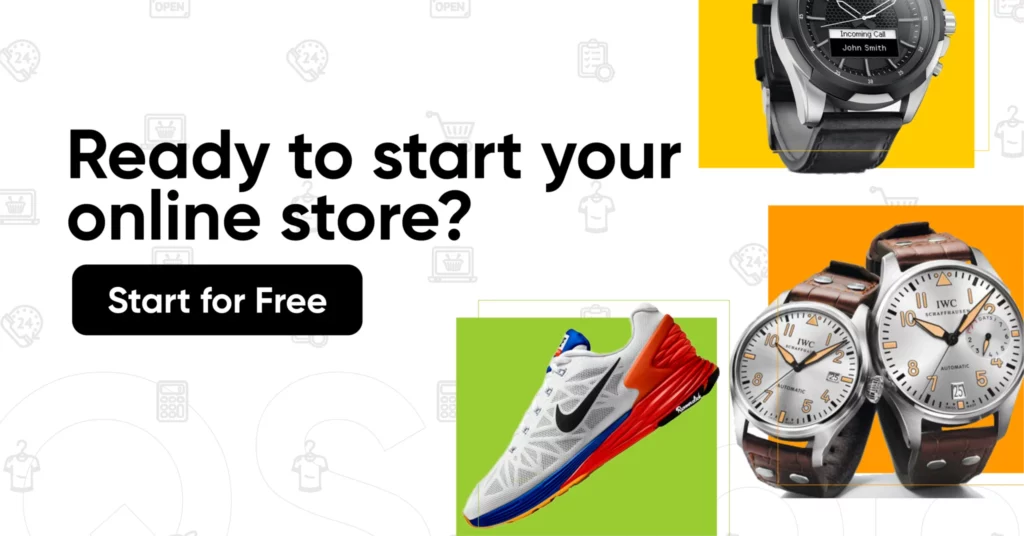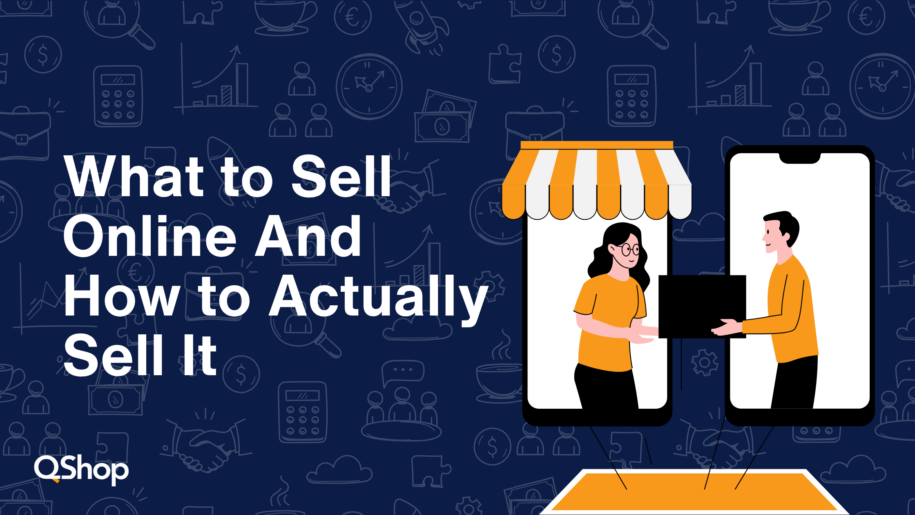If you’ve ever wanted to start an online business but didn’t want the stress of sourcing products or dealing with logistics, digital products might be your best bet. And the good news? There are tons of digital products you can sell, even if you don’t have advanced tech skills. Nigeria’s digital economy is booming, and the numbers prove it. The Digital Media market is projected to generate $1.91 billion in revenue as at 2024, and e-commerce is expected to grow from $15 billion in 2023 to $33 billion by 2026. That’s a clear sign that more people are comfortable spending money online. Whether it’s for education, entertainment, business tools, or creative resources, Nigerians are buying digital products at an increasing rate.
Here’s why you should jump on this opportunity:
- Low Startup Costs – You don’t need a warehouse or shipping fees. Just create your product once and sell it repeatedly.
- High-Profit Margins – Since there are no production costs after the first version, almost all the money from each sale is pure profit.
- Passive Income Potential – Once your product is out there, you can keep making money from it without actively working every day.
Now let’s break down the best Digital product to sell online and how to market them effectively.

Best Digital Products to Sell Online
When it comes to making money online selling digital products, the goal here is simple: find products that people are actively searching for and willing to pay for. Here are some of the digital products currently in high demand.
1. E-books & Online Courses
We love learning, especially when it comes to business, tech, finance, and self-improvement. People are always looking for ways to make more money, upgrade their skills, and stay ahead of the competition. Instead of attending expensive physical classes, they prefer e-books and online courses that they can access anytime.
Hot topics that sell well:
- Mini Importation – Nigerians are looking for ways to buy and resell products profitably.
- Tech Skills – UI/UX design, programming, AI tools, and digital marketing.
- Finance & Investment – Forex trading, crypto, and money management.
- Self-Development – Productivity, confidence-building, and leadership skills.
Where to sell them:
- QShop – Popular among Nigerian creators for selling digital products.
- Teachable & Udemy – Best for global reach if your course is high-quality.
Pro Tip: If you’re selling an online course, keep it straight to the point. Nigerians don’t like unnecessary fluff. If it’s an e-book, use simple English and real-life examples to make it relatable.
2. Digital Templates & Printables
Not everyone has the time or skill to create professional-looking designs from scratch. Whether it’s a business owner, job seeker, or content creator, people prefer to buy ready-made templates they can quickly customize and use.
Best-selling templates:
- Canva Designs – Social media post templates, Instagram carousels, and business flyers.
- Business Plans & Proposals – Many entrepreneurs want to start businesses but struggle to write professional plans.
- PowerPoint Slides – Great for students and business owners who need presentations.
- CVs & Cover Letters – Job seekers want modern, well-designed resumes that stand out.
Where to sell:
- Shopify – If you want international buyers.
- Gumroad & Creative Market – Perfect for designers looking to sell worldwide.
- QShop – A great local platform for reaching Nigerian customers.
Pro Tip: If you’re good at design, create bundles (e.g., “50 Canva Templates for Small Business Owners”) and sell them at a higher price. Nigerians love value-packed deals.
3. Music & Beats
The global rise of Afrobeats has put Nigerian music producers in high demand. Artists, YouTubers, and brands need custom beats, sound effects, and jingles for their content.
Best-selling types:
- Afrobeats Instrumentals – Upcoming artists are constantly searching for beats.
- Sound Effects – Podcasters and video creators need unique sounds.
- Voiceovers – Many brands need Nigerian-style voiceovers for ads.
Where to sell:
Pro Tip: If you’re a producer, add a watermark on free beats and allow artists to buy the rights to remove it. This drives more sales.
4. Stock Photos & Videos
Many Nigerian businesses, bloggers, and content creators need authentic African-themed visuals for their websites and social media. Instead of using generic foreign images, they want high-quality Nigerian stock photos and videos.
What sells:
- Business & Lifestyle Photos – Nigerian entrepreneurs, market scenes, and office settings.
- Drone Shots – Aerial views of Lagos, Abuja, and tourist attractions.
- Traditional & Cultural Images – Weddings, fashion, and food photography.
Where to sell:
- Shutterstock & Adobe Stock – Great for global sales.
- Pexels & Unsplash – Upload free samples to drive traffic to your paid images.
Pro Tip: If you have a smartphone with a good camera, you can start taking and selling high-quality stock photos without expensive equipment.
5. Software & Digital Tools
Businesses are always looking for automation tools to save time and money. If you can create simple but useful digital tools, you can make serious money.
Best-selling tools:
- WhatsApp Auto-Responders – For businesses handling many customer messages.
- POS & Accounting Software – Small businesses need easy-to-use finance tools.
- AI-Powered Chatbots – Many brands want to automate customer support.
Where to sell:
- Your own website – Best for direct sales.
- QShop & Gumroad – Great platforms for hosting and selling digital tools.
Pro Tip: If you can’t code, hire a developer to build a simple tool for you, then sell it as a digital product.
6. Membership & Subscription Services
People are willing to pay for exclusive communities and premium content, especially when it helps them make money or gain insider knowledge.
Profitable memberships:
- Forex Signals & Crypto Groups – Many people want expert guidance on trading.
- Marketing & Business Growth Communities – Entrepreneurs pay for access to high-value business strategies.
- Job Boards & Remote Work Groups – People are actively looking for remote job opportunities.
Where to sell:
Pro Tip: If you’re running a Telegram or WhatsApp community, offer a free trial for new members to build trust before charging them.
Whether you’re a writer, designer, musician, developer, or entrepreneur, there’s an opportunity to create and sell a profitable digital product. But having a great product is only half the battle. You also need to know how to market it. In the next section, we’ll break down the best ways to promote your digital products and drive sales.

How to Market Your Digital Products
The truth is, no matter how valuable your product is, it won’t sell itself. You need a solid marketing strategy to put it in front of the right audience. Here’s how to do it:
1. Use Social Media Marketing
Social media is where people spend most of their time online. Whether it’s Instagram, Facebook, LinkedIn, or Twitter, your audience is already there—you just need to grab their attention.
How to do it effectively:
- Create short videos – People love quick, engaging content. Use Reels, TikTok, or Instagram Stories to show how your product works or the benefits it offers.
- Use carousels and infographics – If you’re selling an e-book, for example, share a few pages as a teaser to hook potential buyers.
- Leverage paid ads – Platforms like Facebook and Instagram Ads let you target specific audiences, so your product reaches the right people.
2. Build an Email List
An email list is one of the most powerful ways to sell digital products. Why? Because unlike social media (where algorithms change constantly), you own your email list, and you can market to your subscribers anytime.
How to grow your list:
- Offer a freebie – Nigerians love freebies! Create a free checklist, e-book, or mini-course and give it away in exchange for email addresses.
- Use lead magnets – A simple “Download this free guide on Forex Trading” can attract people interested in your full course.
- Send regular emails – Don’t just collect emails and disappear. Share useful tips, testimonials, and discounts to keep your audience engaged.
3. Leverage Influencer Marketing
People trust recommendations more than ads. Instead of trying to convince people to buy your product alone, get micro-influencers (those with 5k–50k engaged followers) to talk about it.
How to make this work:
- Find influencers in your niche – If you’re selling a crypto course, look for crypto Twitter influencers or finance content creators.
- Offer an affiliate deal – Give influencers a commission on every sale they bring in. This way, they’re motivated to promote your product.
- Use video testimonials – Ask influencers to record a short review of your product and post it on Instagram or TikTok.
4. Create SEO-Optimized Blog Content.
Search Engine Optimization (SEO) is a game-changer. People search Google for solutions daily—if your product solves a problem, make sure your website or blog shows up in search results.
How to do it effectively:
- Write blog posts around your niche – If you’re selling business templates, write an article on “Best Business Plan Templates for Nigerian Entrepreneurs”.
- Use the right keywords – Find out what people are searching for and naturally include those keywords in your content.
- Answer common questions – If you sell an online course on Dropshipping, write a blog post answering questions like “How much do I need to start dropshipping in Nigeria?”
5. Sell on Multiple Online Marketplaces
Don’t limit yourself to just one platform. The more places your product is listed, the higher your chances of making sales.
Best platforms to sell digital products:
- QShop – Perfect for selling digital products to Nigerians.
- Gumroad & Creative Market – Great for reaching an international audience.
- Patreon & Telegram – Best for membership subscriptions (e.g., premium communities).
6. Offer Limited-Time Discounts & Bonuses
People love feeling like they’re reaping you off. If you want to boost sales quickly, create a sense of urgency by running flash sales, bundle deals, or limited-time bonuses.
Smart discount strategies:
- Flash Sales – Announce a 24-hour discount on your digital product to drive fast purchases.
- Buy One, Get One Free – If you’re selling e-books, offer a second one for free as a bonus.
- Exclusive Bundles – Package multiple products together at a lower price (e.g., “Get 3 e-books for the price of 2”).
Marketing is what makes or breaks your digital product. Stay consistent, provide value, and focus on building trust. If you still have questions, check out the FAQ section below for more insights!
Why QShop is the Best Platform for Selling Digital Products
If you want to sell digital products without stress, QShop is one of the best platforms to consider. Unlike some marketplaces where you compete for attention or deal with delayed payments, QShop gives you full control over your store while making the entire process simple, fast, and efficient. Here’s why:
1. Instant Payments – Get Your Money Immediately
Waiting days or even weeks to receive payments can be frustrating. With QShop, that’s not a problem. As soon as a customer makes a purchase, the money reflects in your account instantly. This means better cash flow and less dependency on third-party payment delays.
2. Automated File Delivery – No Manual Work Needed
Imagine having to manually send a PDF, template, or beat to every single customer after they buy. It’s time-consuming and honestly, a hassle. QShop automates this process—once someone makes a payment, they instantly receive the file without you lifting a finger. This feature saves you time, reduces errors, and ensures customers get what they paid for immediately.
3. Built-in Marketing Tools – Sell Smarter, Not Harder
Selling isn’t just about uploading a product and waiting for sales to roll in. You need marketing tools to drive sales, and QShop has them built-in:
- Promo Codes & Discounts: Run limited-time offers to boost sales.
- Campaigns & Upsells: Encourage customers to buy more with bundle offers.
- Analytics & Insights: See what’s working and where your traffic is coming from.
- Email: Collect customer emails and send newsletters, product updates
With these tools, you don’t need extra software to promote your digital products—everything is already inside QShop.
4. No-Code Setup – Launch Your Store in Minutes
Not everyone is tech-savvy, and that’s okay. QShop is built for simplicity. You don’t need coding skills, expensive developers, or complicated setups. In just a few minutes, you can:
- Set up your online store.
- Upload your digital products.
- Start selling immediately.
Everything is plug-and-play, making it perfect for beginners and busy entrepreneurs.
5. Own Your Brand – Full Control Over Your Store
Many digital product marketplaces and website builders limit your control. They dictate pricing, take commissions, and sometimes even compete with your products. QShop is different.
- No excessive commissions. You keep more of your profits.
- Custom branding. Your store looks and feels like your brand, not someone else’s.
- Direct customer relationships. No middlemen—buyers interact with you directly.
With QShop, you’re not just another seller on a crowded marketplace. You’re running your own independent digital store with total control over pricing, branding, and customer experience.

Frequently Asked Questions About Selling Digital Products Online
1. What are the most profitable digital products to sell in Nigeria?
The best digital products to sell in Nigeria include:
- E-books & Online Courses (People are always looking to learn new skills)
- Digital Templates & Printables (Canva designs, business plans, resumes, PowerPoint slides)
- Music & Beats (Afrobeats instrumentals, sound effects, voiceovers)
- Stock Photos & Videos (Local Nigerian visuals for businesses and content creators)
- Software & Digital Tools (POS systems, WhatsApp autoresponders, business automation tools)
- Membership & Subscription Services (Forex signals, crypto groups, exclusive communities)
2. How do I create and sell an e-book or online course?
- Step 1: Choose a topic in demand (e.g., Digital Marketing, Tech Skills, Mini Importation).
- Step 2: Write your content or record video lessons (for courses).
- Step 3: Design the e-book using Canva or format your videos professionally.
- Step 4: Host your product on platforms like Selar, QShop, Teachable, or Gumroad.
- Step 5: Market your product using social media, influencers, and email marketing.
3. How do I price my digital products?
Pricing depends on value, demand, and competition. Consider these factors:
- E-books: ₦2,000 – ₦10,000 (based on topic & exclusivity).
- Online Courses: ₦5,000 – ₦100,000+ (more depth = higher price).
- Templates: ₦500 – ₦5,000 per template or ₦10,000+ for bundles.
- Membership Groups: ₦5,000 – ₦50,000/month (depending on access level).
4. How do I receive payments from customers?
- Use an E-commerce platform to sell: Use QShop to sell your digital products online The platform helps you accept both national and international payments bank.
- For international payments: Use PayPal, Stripe, or Payoneer (some platforms like Gumroad also handle payments for you).
5. Do I need to register a business before selling digital products?
Not necessarily. You can start as an individual seller and register later when you scale up. However, if you want to look professional and receive corporate payments, registering a business (CAC) is a smart move.
6. What is the best platform to sell digital products in Nigeria?
Top platforms include:
- QShop – Best for African sellers.
- Gumroad & Shopify – Great for selling to an international audience.
- Teachable & Udemy – Ideal for hosting and selling online courses.
7. How do I prevent people from pirating my digital products?
- Watermark your files (for e-books & templates).
- Limit downloads & access (use platforms like Gumroad or Teachable that protect your content).
- Sell via membership models (where users pay for access instead of a one-time download).
- Use password-protected PDFs & licensing for software products.
8. How long does it take to start making money from digital products?
It depends on your marketing strategy. Some sellers make sales within days, while others take weeks or months. Focus on building an audience and using the right marketing channels to speed up the process.
9. Can I sell digital products even if I’m not tech-savvy?
Yes! Many platforms make it easy to create and sell digital products without coding or advanced tech skills. For example:
- Use Canva to design e-books and templates.
- Use QShop or Gumroad to set up your online store in minutes.
- Record courses with just your phone (no need for fancy equipment).
10. I don’t have a product yet. What should I do?
Start by identifying a problem people need a solution for. Then:
- Research trending topics in Nigeria (e.g., making money online, forex trading, social media marketing).
- Check what competitors are selling and improve on their ideas.
- Start small—create one product first and refine it based on feedback.
Start Your Digital Product Business Now!
The Nigerian digital economy is booming, and with e-commerce expected to hit $33 billion by 2026, now is the time to take advantage of selling digital products.
But remember: having a great product isn’t enough—you need a strong marketing strategy to reach the right people.
So, whether you’re selling an e-book, online course, stock photos, or digital templates, start marketing it the right way and watch your sales grow! Create your free QShop store today and start making money from your digital products!


